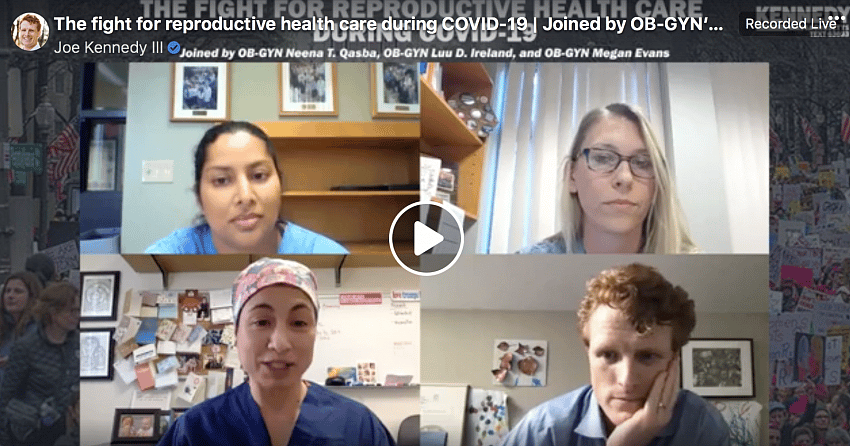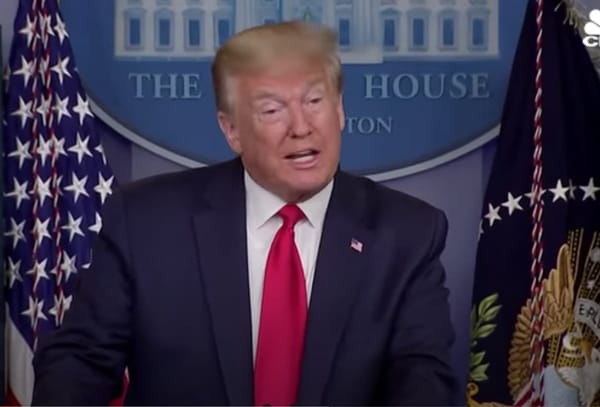Joe Kennedy III Hosts Panel Discussion of Abortion Providers, Calls for ‘Reproductive Justice’

U.S. Representative Joseph P. Kennedy III hosted an online forum featuring three obstetrician-gynecologists who perform abortions as part of his campaign for U.S. Senate in Massachusetts this week.
Kennedy leads U.S. Senator Ed Markey in recent polls but trails in endorsements from prominent Democratic interests, including from groups that support abortion. NARAL Pro-Choice America endorsed Markey on August 15, about a month before Kennedy entered the race. Planned Parenthood Action Fund endorsed Markey on January 21, four months after.

